Science Fiction Novels That Helped Us Explore Exciting New Sexual Territories
Five boundary-redefining works from legends in the genre
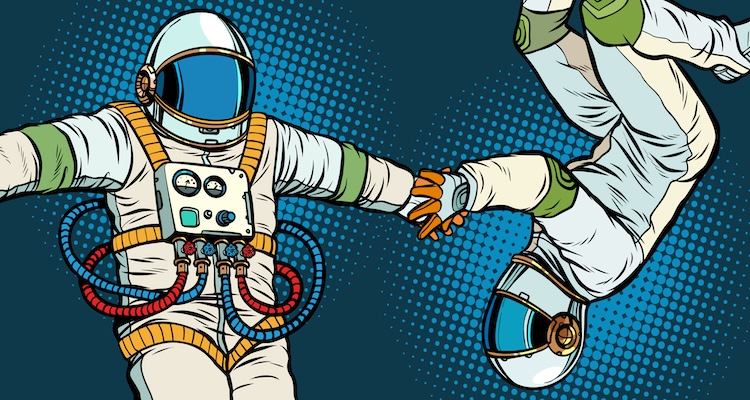
Like a lot of genres, science fiction took a bit of time to discover that one special, yet very basic, component of humanity.
Yes, I’m talking about sex.
But unlike mystery, horror, romance, thriller—and every flavor of literature you can name—when these science fiction authors explored eroticism, it didn’t just change that genre. Using visions of the future, they changed the way many people came to look at sex itself.
While there are many writers working today who are exploring sexuality in science fiction (hint, hint), here are five works personally feel go far above and far beyond the known limits of both sex and science fiction.
Oh, and be prepared for some very minor plot spoilers—but I promise not to give too much away.
The Lovers by Philip Jose Farmer
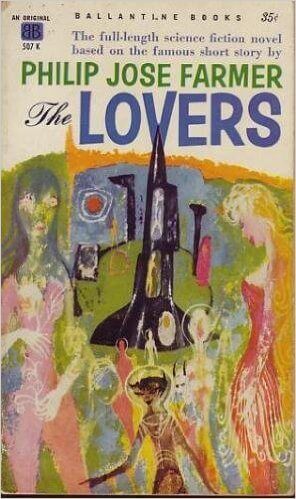
Remarkably, there are very few disagreements as to when science fiction looked not just up at the stars, but below its own belt. Sure, during the heyday of the pulp magazines, mainly during the 20s and the 30s, many authors played with simple titillation but none of them described any real (ahem) details.
In 1953, one author changed all that.The Lovers was not just Philip Jose Farmer’s (1918–2009) first published work, but the novella won him the coveted Hugo Award (one of the most prestigious awards in the genre), and introduced sexuality to science fiction. In a big way.
Still poignant and evocative today, I won’t ruin your experience discovering this groundbreaking work by getting too much into the details of the plot. In many ways it reads like the opening to every science fiction novel ever: human hero dispatched to an alien world, Earthling “Powers That Be” have a hidden agenda, human hero encounters alluring member of an alien species, human hero falls in love, human hero stands up against the “Powers That Be”.
But The Lovers is so much more than that. Farmer not just leaves the lights on for the alien-human close encounters, but he actually had the bravery, or simple honesty, to include an actual orgasm.
Farmer continued his beautiful melding of sensuality in his science fiction work, one of the best examples being his collection of stories Strange Relations. Farmer also penned two—to put it politely—outrageous, and very sexually explicit novels called Image of the Beast and Blown. Pick them up if you want to see what happens when an acclaimed science-fiction author lets his erotic imagination run totally wild.
Venus Plus X by Theodore Sturgeon
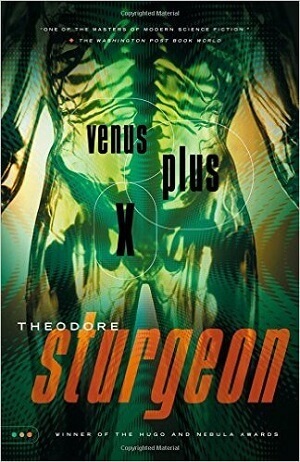
Without hyperbole, Theodore Sturgeon (1918 –1985) remains a science-fiction grandmaster. His novels More Than Human (1953), The Dreaming Jewels
(1950), The Cosmic Rape
(1958), and others are considered, rightly so, masterpieces of the genre.
As any fan of Sturgeon knows, he has also never shied away from understanding and celebrating sexuality. One of his very special books, published in—are you sitting down?—1960 is Venus Plus X. What it has to say about gender and humanity resonates loudly, even 55 years later.
The story is deceptively simple: our protagonist, Charlie Johns, finds himself in the world of the Lendom, an intelligent, highly advanced, and peaceful offshoot of humanity … that happens to physically combine male and female sex organs.
What makes Venus Plus X so powerful is that Sturgeon presents it without judgment, of course beyond those brought to the book by Charlie himself. Sturgeon revisited this same non-prejudicial style in his story “If All Men Were Brothers, Would You Let One Marry Your Sister?”, which first appeared in Dangerous Visions, edited by Harlan Ellison in 1967. However, in Venus Plus X he shows us a world without a certain taboo; the taboo of incest.
The Female Man by Joanna Russ
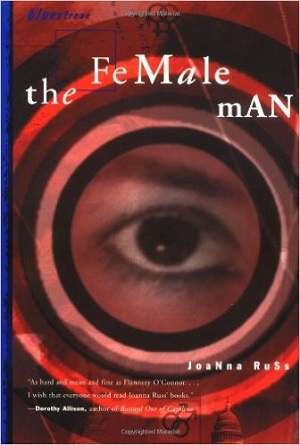
In the 1960s and 1970s, science fiction experienced the New Wave: a change in the genre reflecting what was happening in the world around it. Part of this New Wave explosion was the mislabeled subgenre of feminist science fiction.
I say mislabeled because it’s far too lazy to simply look at what many writers were doing at the time and dismiss it as “feminist.” Jody Scott, Alice B. Sheldon (James Tiptree, Jr.), Ursula K. Le Guin, and many others were not just empowering female characters, and women authors, but altering how many people saw science fiction, and sexuality itself.
One of the brightest of the New Wave was Joanna Russ (1937 –2011). Her novel, The Female Man (1970), still stands tall as not just brilliant science fiction, but as a work that delves into almost every conceivable possibility regarding gender and sexuality.
In a (brief) nutshell, The Female Man is about a series of parallel worlds where the “war of the sexes” played out differently.
One of these worlds called Whileaway explores an Earth where men have become extinct, but humanity continues—quite beautifully—through artificial parthenogenesis.
Russ’s writing is powerful, as much today as when much of her work was first published. To see it as just part of the counterculture movement, both in the world as well as science fiction does the beauty and bravery of her work a huge disservice.
Season of the Witch by Jean Marie Stine
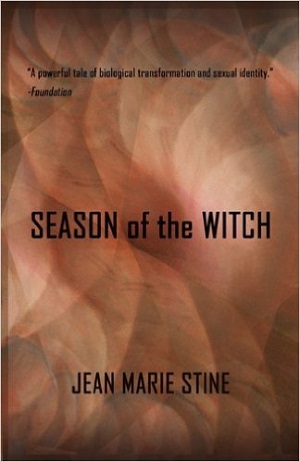
While, again, often categorized as part of the New Wave, Jean Marie Stine’s (b. 1945) Season of the Witch transcends all labels, which is exactly the point of this staggering novel.
While many works before, such as the already mentioned Venus Plus X and The Female Manexamined gender and sexuality in forms of quasi-abstracts, Jean Marie Stine’s novel took a much more direct approach.
Psychedelic and stylish, but always remaining accessible as well as remarkably heartfelt, Season Of The Witch deals with Andre, who is found guilty of rape and murder. In this dystopian future Earth, he receives an appropriate punishment: his consciousness is transferred into the body of a woman.
It is remarkable that this novel, first published in 1968, was one of the very first to take such a deceptively simple concept—to truly travel where no man has gone before. Luckily, Jean Marie Stine was the person to do it and Season Of The Witch is a perfect meld of science-fiction literature and gender/sexuality investigation—with a particularly beautiful sensitivity.
The World Inside by Robert Silverberg
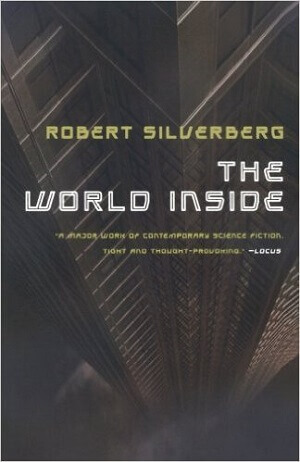
This last part is where the list gets a bit fuzzy. The fact is if there is one single master of science fiction who deserves to be on this list, it is Robert Silverberg (b. 1935). From his first published work in 1955, Silverberg has shown time and again that he’s not just a phenomenal and insanely prolific author, but one in science fiction who has always perfectly melded the genre with a beautiful appreciation of sensuality.
Because he is the author of so many works (non-fiction books, short stories, novels, anthologies edited, and over 100 science fiction novels), it is extremely hard to point to just a single work by Silverberg as being groundbreaking in regards to sexuality. If anything, almost every book by Silverberg should be on this list.
Homosexuality to bisexuality, polyamory to beyond, sex for characters in Silverberg novels isn’t something that happens to them, rather their eroticism is an integral part of their humanity— and is a beautiful thing.
But, as our space is limited, one of his books that personally rings as a standout is his 1971 novel The World Inside. Set in the year 2381, the novel looks at the idea of quantity versus quality. In this case, the quantity is human reproduction as the culture of The World Inside is one where procreation has become almost the single most important driving force.
So powerful is it, that men are encouraged to go “night walking” to freely visit, and hopefully impregnate, as many women as possible. While many books have played with the concept of the human population explosion in clumsy dystopias—Harry Harrison’s Make Room! Make Room! (which inspired the film Soylent Green in 1973) is an example of how to do it right—The World Inside shows the issue in an even more chilling light. By giving it a happy, yet emptily, grinning face.
#
Science fiction has always been a genre of exploration, especially where it reflects on what it means to be human. These fantastic works and their authors looked out at the universe as well as inward at sexuality, creating some truly staggering pieces of literature.
And, for their readers as well as many others, they altered the very idea of what sex is … and could be.
Image sources: Depositphotos, Amazon
1 comment
Leave a reply
You must be logged in to post a comment.










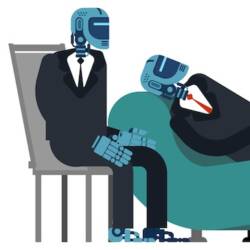

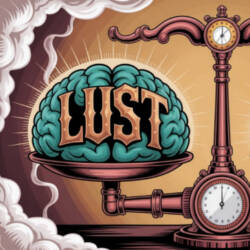


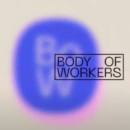
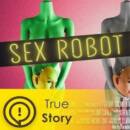

Venus Plus X was an amazing read – difficult at times, but fascinating. The Female Man I did not care for quite so much, but I can see its value.
Season of the Witch blew my mind when I first discovered it, and it remains one of my all-time favorite reads. It’s one of those stories that still stands up as an important landmark in sci-fi AND as an enjoyable read.